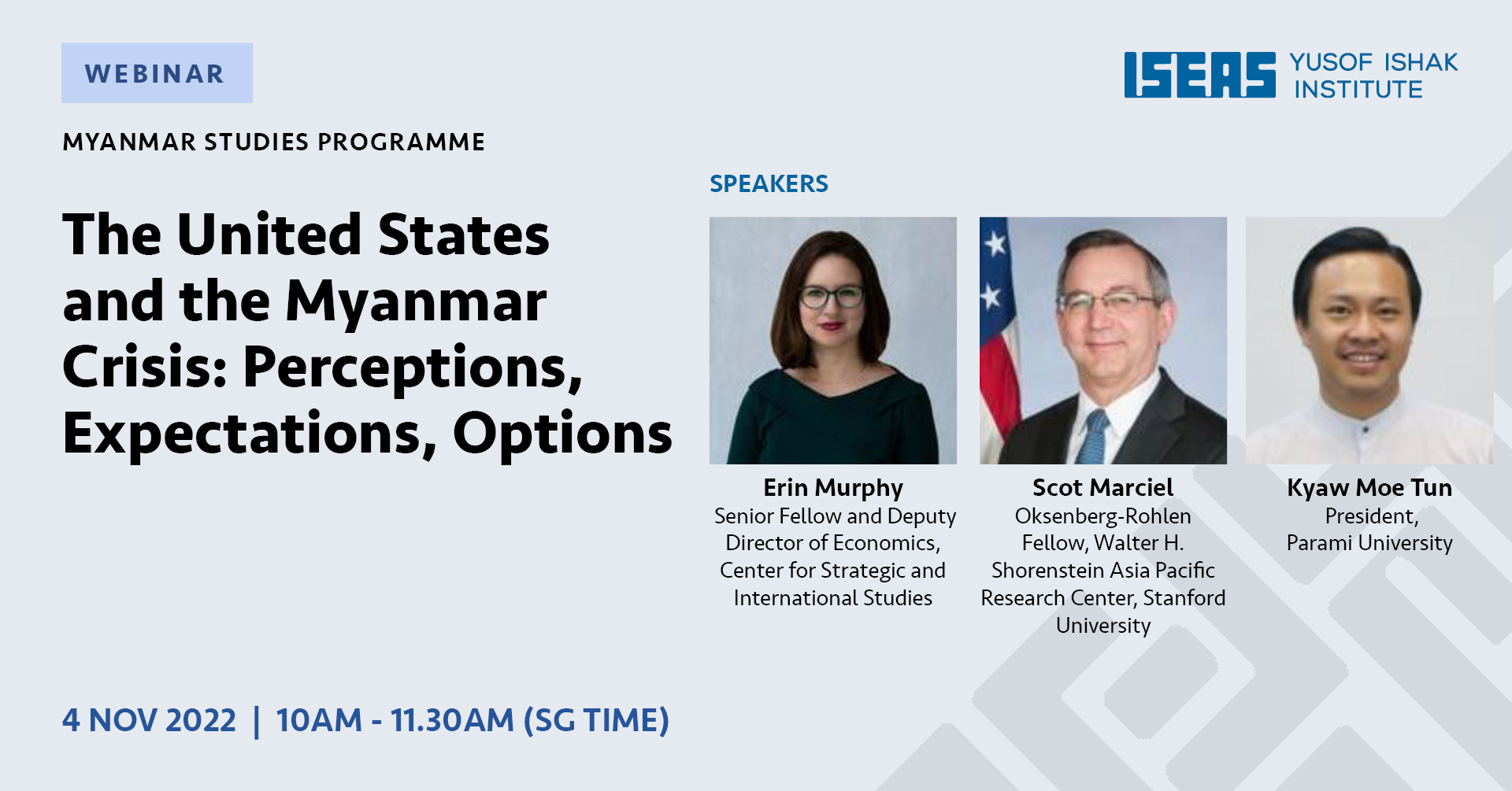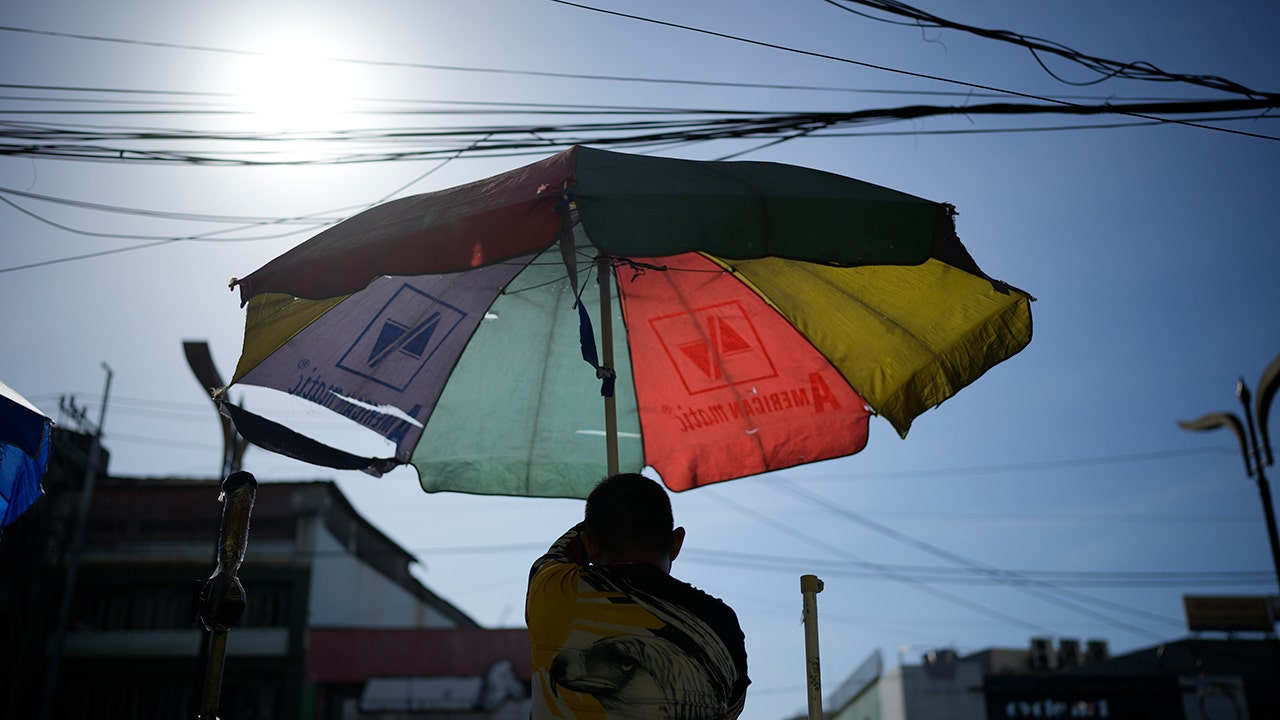The UK And Australia's Response To The Myanmar Crisis: A Case Of Selective Justice?

Table of Contents
The UK's Response to the Myanmar Crisis
Sanctions and Targeted Measures
The UK has implemented a series of sanctions targeting key figures within the Myanmar military junta and associated entities responsible for the violence and human rights abuses. These actions are based on the UK's Global Human Rights Sanctions Regulations and aim to cripple the regime's financial capabilities and restrict the movement of its leaders.
- Types of Sanctions: Asset freezes, travel bans, and arms embargoes.
- Specific Examples: Sanctions have been imposed on individuals like Min Aung Hlaing, the head of the military, and numerous businesses linked to the Tatmadaw (Myanmar's armed forces).
- Criticisms: Critics argue that the UK's sanctions regime lacks sufficient scope, suffers from loopholes that allow sanctioned individuals to circumvent restrictions, and has had limited impact on changing the junta's behavior. The effectiveness of targeted sanctions in complex situations like the Myanmar crisis remains a subject of debate.
Diplomatic Engagement and International Cooperation
The UK has actively participated in multilateral forums such as the United Nations Security Council and ASEAN (Association of Southeast Asian Nations) to exert diplomatic pressure on the Myanmar junta. They have consistently condemned the violence and called for a return to democracy.
- Diplomatic Initiatives: The UK has led or participated in initiatives advocating for the release of political prisoners, the cessation of violence, and the resumption of the democratic transition. They have also supported UN fact-finding missions and international investigations into human rights abuses.
- Success and Limitations: While diplomatic efforts have helped to raise international awareness of the crisis, their impact on the junta's actions has been limited. The lack of strong unified action within the UN Security Council, and the constraints imposed by ASEAN's non-interference policy, have hampered the effectiveness of these diplomatic initiatives.
Humanitarian Aid and Support for Refugees
The UK has provided substantial humanitarian assistance to Myanmar refugees and internally displaced persons (IDPs). This aid is channeled through international organizations and NGOs operating within Myanmar and neighboring countries.
- Amount and Type of Aid: The UK has pledged millions of pounds in humanitarian aid, covering essential needs such as food, shelter, medical care, and protection services.
- Impact of UK Humanitarian Aid: While the aid has undoubtedly alleviated some suffering, the scale of the humanitarian crisis is immense, and the assistance provided may not be sufficient to meet the needs of all those affected. Access to vulnerable populations within Myanmar remains a significant challenge.
Australia's Response to the Myanmar Crisis
Sanctions and Targeted Measures
Australia has also imposed targeted sanctions against individuals and entities within the Myanmar military regime, mirroring some of the UK's actions. These sanctions are based on Australia's Autonomous Sanctions regime.
- Specific Sanctions: Australia has imposed travel bans and asset freezes on numerous individuals and entities linked to the military junta, including senior military officials and businesses involved in human rights abuses.
- Comparison with UK Sanctions: While there's significant overlap, the specific individuals and entities targeted by Australia may differ slightly from the UK's sanctions list. The scope and intensity of sanctions may also vary between the two countries.
Diplomatic Engagement and Regional Cooperation
Australia's diplomatic efforts have focused heavily on engagement with regional partners within ASEAN, seeking to leverage regional influence to address the crisis.
- Diplomatic Strategies: Australia has worked closely with other ASEAN members to coordinate responses, promoting dialogue and seeking pathways to a peaceful resolution. They have also actively participated in UN-led initiatives.
- Effectiveness of Regional Collaborations: While regional cooperation is crucial, ASEAN's approach to the Myanmar crisis has been criticized for its slow response and its reluctance to impose strong sanctions on the junta. This hampers the overall effectiveness of regional collaboration.
Humanitarian Aid and Refugee Support
Australia has also provided significant humanitarian assistance, though the scale may differ from that of the UK.
- Amount and Type of Aid: Australia has pledged financial aid to support refugees and IDPs, largely through international organizations working in the region.
- Comparison with UK Response: The specifics of the aid programs and the amount allocated may vary, with potentially different priorities and areas of focus between the two countries.
Comparative Analysis: Selective Justice?
Consistency and Scope of Responses
Both the UK and Australia have implemented sanctions and provided humanitarian aid, demonstrating a commitment to addressing the Myanmar crisis. However, the intensity and scope of their responses show variations.
- Similarities: Both countries have targeted key figures within the Myanmar military and provided humanitarian aid.
- Differences: The specific individuals and entities sanctioned, the scale of humanitarian aid, and the diplomatic strategies employed may differ. The extent to which these differences reflect a degree of selectivity remains a key question. A thorough analysis of these differences is necessary to determine whether it is a strategic choice or reflects a gap in commitment.
Effectiveness of Sanctions and Diplomatic Pressure
Assessing the effectiveness of sanctions and diplomatic pressure is challenging.
- Impact of Sanctions: While sanctions have undoubtedly placed some financial and travel restrictions on the junta, their overall impact on changing the regime's behavior remains debatable. The sanctions may have had limited success in altering the junta's behavior.
- Effectiveness of Diplomatic Initiatives: Diplomatic engagement has raised awareness and facilitated international cooperation, but its influence on the junta's actions has been limited. Further investigation into the success rate of sanctions is crucial.
Geopolitical Considerations and National Interests
Geopolitical considerations and national interests inevitably influence the responses of both the UK and Australia.
- Geopolitical Influences: Regional power dynamics within Southeast Asia and broader geopolitical competition between major powers may shape the approach of both countries.
- Role of National Interests: The focus and intensity of interventions might be influenced by Australia's closer proximity to Myanmar and the UK's broader global foreign policy priorities.
Conclusion: The UK and Australia's Response to the Myanmar Crisis: A Case of Selective Justice?
This comparative analysis reveals a complex picture of the UK and Australia's responses to the Myanmar crisis. While both nations have taken steps to address the human rights violations and humanitarian emergency, the varying intensities of their responses raise questions about the consistency and impartiality of their actions. The limited impact of sanctions and diplomatic pressure highlights the challenges of confronting authoritarian regimes. The question of whether their actions constitute selective justice remains open to debate. Further research is needed to fully understand the scope and limits of these interventions.
We must continue to advocate for stronger, more consistent international action to address the Myanmar human rights crisis. We need a unified global effort, ensuring that the international response to Myanmar is robust, equitable, and effective, ultimately leading to justice for Myanmar. It's time to move beyond mere condemnation and towards concerted action that holds perpetrators accountable and brings relief to the suffering people of Myanmar.

Featured Posts
-
 Eurovision 2025 Sissal Repraesentere Danmark
May 13, 2025
Eurovision 2025 Sissal Repraesentere Danmark
May 13, 2025 -
 Bar Roma Your Guide To This Popular Toronto Bar Blog To
May 13, 2025
Bar Roma Your Guide To This Popular Toronto Bar Blog To
May 13, 2025 -
 Elsbeth Season 2 Episode 15 Review A Disappointing Psychic Murder
May 13, 2025
Elsbeth Season 2 Episode 15 Review A Disappointing Psychic Murder
May 13, 2025 -
 Addressing Kelly Ripas Absence Mark Consuelos Live Show Experience
May 13, 2025
Addressing Kelly Ripas Absence Mark Consuelos Live Show Experience
May 13, 2025 -
 Heat Wave Forces School Closures Across Half Of Philippine Capital
May 13, 2025
Heat Wave Forces School Closures Across Half Of Philippine Capital
May 13, 2025
Latest Posts
-
 Nba Draft Lottery 2025 Who Wins The Top Pick Odds And Live Streaming Guide
May 13, 2025
Nba Draft Lottery 2025 Who Wins The Top Pick Odds And Live Streaming Guide
May 13, 2025 -
 Character Development The Argument For Angus As A Recurring Character In Elsbeths Writing
May 13, 2025
Character Development The Argument For Angus As A Recurring Character In Elsbeths Writing
May 13, 2025 -
 2025 Nba Draft Lottery Predicting The No 1 Pick And Where To Watch
May 13, 2025
2025 Nba Draft Lottery Predicting The No 1 Pick And Where To Watch
May 13, 2025 -
 Cooper Flaggs Nba Future Analyzing The Teams With The Highest Odds At The 1 Pick
May 13, 2025
Cooper Flaggs Nba Future Analyzing The Teams With The Highest Odds At The 1 Pick
May 13, 2025 -
 Nba Draft 2025 Whos Best Positioned To Land Cooper Flagg
May 13, 2025
Nba Draft 2025 Whos Best Positioned To Land Cooper Flagg
May 13, 2025
